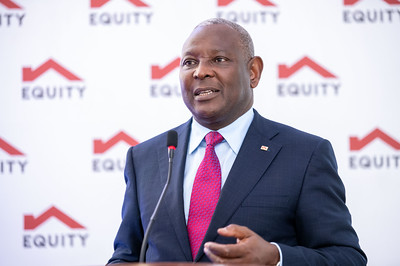The World Bank Group has launched a High-Level Advisory Council on Jobs, a global initiative aimed at tackling one of the most pressing issues of our time: job creation. Launched during the 2024 World Bank Group-IMF Annual Meeting in Washington, DC, the council brings together thought leaders and practitioners to address the significant employment challenges faced by developing economies, with a focus on youth and women.
This council is part of the World Bank’s broader effort to combat poverty, foster prosperity, and enhance individual dignity through meaningful employment. It underscores the vital role jobs play in enabling self-sufficiency, sustainability, and societal integration.
The formation of the council comes at a critical juncture, as over the next decade, an estimated 1.2 billion people in the Global South will reach working age. However, projections indicate that only 420 million jobs will be available, leaving approximately 800 million individuals without viable employment opportunities.
The council seeks to transform this challenge into an opportunity by focusing on strategies to leverage demographic dividends, particularly in Africa, where a third of the world’s young population will reside by 2030.
The High-Level Advisory Council on Jobs is co-chaired by:
- Tharman Shanmugaratnam: President of Singapore and former Deputy Prime Minister.
- Michelle Bachelet: Former President of Chile and twice Head of Government.
These leaders bring a wealth of experience in governance and economic policy, ensuring the council’s recommendations are both actionable and scalable.
Among the 14 distinguished members of the council is Dr. James Mwangi, Managing Director and CEO of Equity Group Holdings. His inclusion highlights his significant contributions to societal development beyond the banking sector.
Dr. Mwangi emphasized Africa’s unique position amid global demographic shifts, stating:
“Over the next decade, the world is expected to experience significant demographic shifts, with one in four people on the planet being African and more than a third of the world’s young people residing in Africa. Leveraging this demographic dividend could contribute up to 15% of GDP growth and a 17% reduction in poverty by 2030.”
Dr. Mwangi also highlighted the role of the Equity Africa Recovery and Resilience Plan, which aims to create 50 million jobs across Africa by 2030.
“Young people are our future and the key to sustainable development for the continent. My intention is to utilize the learnings of the council to maximize this initiative,” he said.
The council comprises a diverse mix of policymakers, business leaders, academics, and civil society pioneers. Members include:
- Guy Ryder: UN Under-Secretary-General for Policy.
- Patrick Achi: Former Prime Minister of Côte d’Ivoire.
- Nonkululeko Nyembezi: Chairperson of Standard Bank Group.
- Sebastien Bazin: Chairman and CEO of Accor Group.
- Preetha Reddy: Executive Vice President of Apollo Hospitals.
- Mostafa Terrab: Chairman and CEO of OCP Group.
- Marianne Bertrand: Professor at the University of Chicago Booth School of Business.
- Madhav Chavan: Co-founder of Pratham, India’s leading education NGO.
- Fang Cai: Chief Expert at the Chinese Academy of Social Sciences.
- Rohini Pande: Professor at Yale University.
This diverse lineup ensures a wide range of perspectives and expertise, enabling the council to address job creation comprehensively.
The council will meet every two months over an initial two-year period, working directly with the senior management of the World Bank Group to translate ideas into concrete actions. The emphasis is on youth and female employment opportunities in emerging economies, aligning with the Bank’s overarching goal to promote inclusive economic growth.
- Youth Employment: Addressing the employment needs of the 1.2 billion working-age adults in the Global South over the next decade.
- Women’s Workforce Participation: Identifying strategies to bridge gender gaps in employment.
- Scalable Solutions: Developing replicable models for job creation across diverse economies.
- Innovation and Collaboration: Leveraging technology, education, and partnerships to spur job growth.
Africa stands out as a region with immense potential to benefit from the council’s initiatives. Improved life expectancy, education, and income levels have contributed to rapid population growth. If effectively harnessed, Africa’s youthful workforce could drive unprecedented economic growth and poverty reduction.
Dr. Mwangi’s insights into Africa’s demographic dividend align closely with this vision, positioning the continent as a focal point for global job creation efforts.
The World Bank’s High-Level Advisory Council on Jobs represents a bold step towards addressing global employment challenges. By uniting global experts, fostering innovative solutions, and focusing on the most vulnerable populations, the council aims to create sustainable pathways to prosperity.
Dr. Mwangi’s leadership and Africa’s unique demographic landscape provide an opportunity to turn challenges into drivers of growth, setting an example for the rest of the world.





